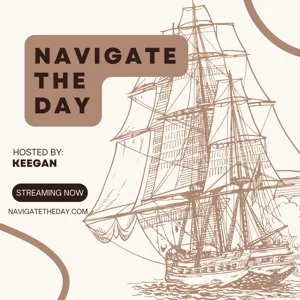Yancey Strickler (@ystrickler) is an entrepreneur and writer, co-founder of Kickstarter, The Creative Independent, and the author of This Could Be our Future, A Manifesto for a More Generous World. He’s a Distinguished Fellow at the Drucker Institute, one of Fast Company’s Most Creative People, and an angel investor in startups, including Hopin, Mati, Organise, Realtime, Supercritical, System, and Wren.
Host Anne Mühlethaler met Yancey over Zoom, with 50 or so others, curious after hearing him speak of his Bentoism project on the James Altucher show in Spring 2020. Having gotten to know each other over the past few months via the Bento Society, Anne starts the conversation by asking Yancey about his upbringing in rural Virginia, his passion for reading, writing and the early days of his career as a music critic in New York City. Yancey talks Anne through the inception of Kickstarter and shares what he learnt about manifesting ideas during the years he spent supporting thousands of creative projects launched on the crowdfunding platform.
He explains how he came up with the Bento (Beyond Near Term Orientation), a tool he designed while he was in the process of writing his book. After pondering on the meaning of value and the Self, Yancey was in need of a metaphor as he explored how to balance decision making between near and long-term, and going beyond the ‘now me’ of the present self’s needs. The two also chat about data, reputation and identity in the digital age, tribes,post-individualism and self-interest. They finish the discussion on whether the Bento can be helpful in building a better future for the planet, or as per Yancey’s original idea, how it could lead us on an intentional path to a better 2050.
A fascinating and fun conversation, happy listening!
***
Selected Links from the episode
You can find Yancey @Ystrickler on Twitter or via his website Ystrickler.com
The Creative Independent - https://thecreativeindependent.com/
Bentoism & The Bento Society - https://bentoism.org/join
Yancey interviewed on the James Altucher's Podcast - https://omny.fm/shows/the-james-altucher-show/589-yancey-strickler
The Trouser Press Record Guide - https://www.goodreads.com/book/show/899268.The_Trouser_Press_Record_Guide
Kickstarter's Stats page - https://www.kickstarter.com/help/stats
Adam Smith - Wealth of Nations - https://en.wikipedia.org/wiki/The_Wealth_of_Nations
Jerry Colonna Reboot - https://www.reboot.io/podcast/
Don Cherry - Relativity Suite 2 - https://en.wikipedia.org/wiki/Relativity_Suite
The Weirdest People in the World - https://en.wikipedia.org/wiki/The_WEIRDest_People_in_the_World
Priya Parker - The Art of Gathering - https://www.priyaparker.com/thebook
Peter Hook - https://en.wikipedia.org/wiki/Peter_Hook
Joy Division - https://en.wikipedia.org/wiki/Joy_Division
Our Band Could Be Your Life - https://en.wikipedia.org/wiki/Our_Band_Could_Be_Your_Life
Not for Bread Alone - https://en.wikipedia.org/wiki/Not_by_Bread_Alone
***
If you enjoyed this episode, click subscribe for more, and consider writing a review of the show on Apple Podcasts, it helps people find us and also helps to secure future guests. Thank you so much for listening!
For all notes and transcripts, please visit Out Of The Clouds on Simplecast - https://out-of-the-clouds.simplecast.com/
Sign up for Anne's email newsletter for more from Out of the Clouds at https://annevmuhlethaler.com.
Follow Anne:
Twitter: @annvi
IG: @_outoftheclouds
This episode is brought to you by AVM Consulting
Struggling to connect with your audience? Feeling disconnected from your brand's purpose? Is motivating your team becoming a daunting task?
AVM Consulting offers a unique blend of coaching, consulting, and storytelling services designed to help your brand connect authentically, align with your values, and inspire your team to achieve greatness.
With a track record of success in working with fashion and luxury partners worldwide, AVM Consulting, led by industry expert and certified coach Anne Mühlethaler, is your trusted partner in achieving your brand's vision.
Ready to transform your brand and drive meaningful change? Don't wait any longer. We like to make magic happen.
FIND OUT MORE ABOUT AVM CONSULTING HERE.
***
If you enjoyed this episode, click subscribe for more, and consider writing a review of the show on Apple Podcasts, we really appreciate your support and feedback. And thank you so much for listening!
For all notes and transcripts, please visit Out Of The Clouds on Simplecast - https://out-of-the-clouds.simplecast.com/
Sign up for Anne's email newsletter for more from Out of the Clouds at https://annevmuhlethaler.com.
Follow Anne and Out of the Clouds:
IG: @_outoftheclouds or @annvi
Or on Threads @annvi
On Youtube @OutoftheClouds
For more, you can read and subscribe to Anne's Substack, the Mettā View, her weekly dose of insights on coaching, brand development, the future of work, and storytelling, with a hint of mindfulness.

















